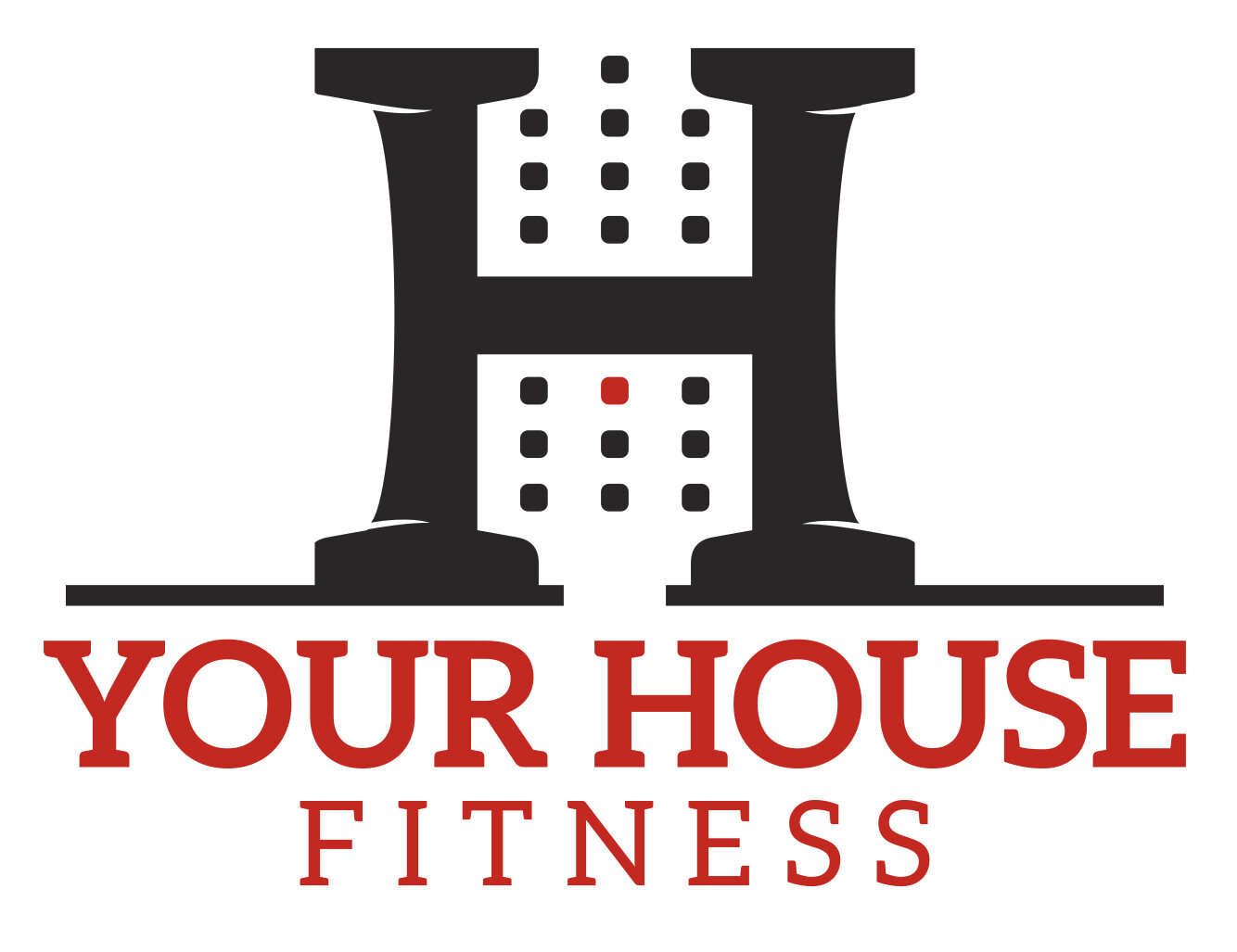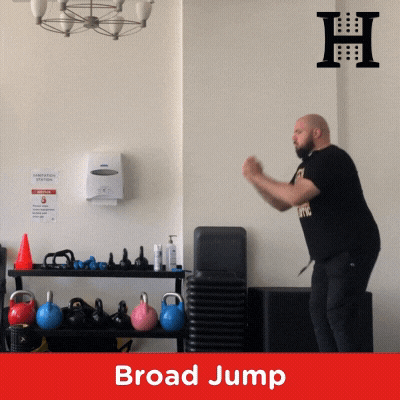Exercise Tutorial: Broad Jump
Table of Contents
What Is a Broad Jump
The Broad Jump is a fantastic plyometric exercise to help clients build their lower body power and become more explosive while targeting the glutes, quadriceps, hamstrings, and calves.
How to Do a Broad Jump
The Broad Jump has a similar set up to the Box Jump, instead of looking for vertical distance, we’re looking to achieve horizontal distance. Follow these instructions to perform the Broad Jump:
Begin by standing with your feet shoulder width apart, arms up in the air above your head and slight bend in the knees.
Sit back in the hips and squat down as your swing your arms back behind you
Swing your arms forward to gain momentum as you extend your knees, hips and ankles to jump and drive yourself forward
Land softly on the ground with both feet, in a similar position to our take off before returning to a standing position
Broad Jump Form
The Broad Jump is a movement where you can generate a lot of power, and for that reason it’s really important to implement proper form. When performing the broad jump, the main thing we focus on is that our hips, knees and ankles are in alignment. When you land, you want to make sure your knees aren’t caving in and we’re driving our knees over your toes. Another thing to think about throughout the movement is that we are maintaining a nice flat back, especially when we are landing.
Clients often collapse inwards and round their back when they land on the ground as they aren’t absorbing the landing. You want to land softly, stick the landing with your weight over your midfoot and be in a strong athletic position.
For example, you should be solid, if someone were to give you a small shove while in this position, you shouldn’t fall over. In terms of takeoff, we really want to focus on that triple extension of your ankle, knees and hips to help propel you forward and gain distance on your jump. Keep these cues in the back of your mind when performing the exercise!
Broad Jump Benefits
There are many benefits to adding Broad Jumps to your workout routine. Some include:
Build lower body strength and power
Increase rate of force production
Increase stability
Improve long jump distance
Can be incorporated into HIIT workouts or circuit training
Doesn’t require any equipment
Why Is Performing Broad Jumps Useful
Performing the Broad Jump is useful because it’s a great plyometric exercise that increases your lower body strength, power and stability. By becoming more powerful and explosive, this can translate into other aspects of your training or sport. This exercise can also be performed nearly anywhere, whether inside the gym, space that you have indoors at home or anywhere outside, providing some variety to your workouts.
The Broad Jump is also useful because they are easily modifiable and have a few variations to further challenge yourself. For the less experienced client, try performing smaller jumps and less reps until you get the technique down and land with a solid base. Once you have mastered this, you can work towards performing more reps and increasing the distance of your jump. For the more advanced client who want to further challenge themselves, try jumping as far as possible or try out one of the listed variations.
Broad Jumps Variation
Lateral Double Leg (DL) Jumps
Lateral Single Leg (SL) Jumps
SL Broad Jump
SL Broad Jump to DL Landing

